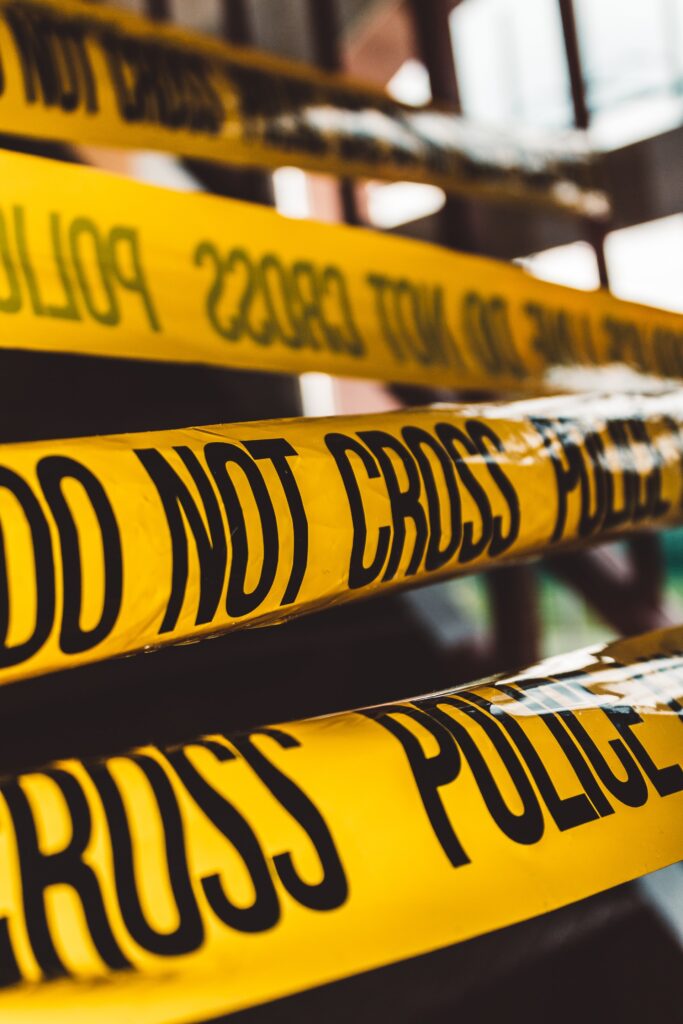
- admin
- June 21, 2021
- 7:49 pm
- No Comments
Crime Scene Investigator: A Comprehensive Career Guide
Although crime scene investigators don’t exactly work as you see their portrayals on TV, it’s still a crucial (and a fascinating) job in the criminal justice process. The truth is that the popularity of TV shows such as CSI has made the career of a crime scene investigator an appealing one.
But is it really as appealing as it looks on TV? What’s the pay like? What are the responsibilities of a crime scene investigator in a police department such as the NYPD? Do you need to be a genius to work as a crime scene investigator? Do you need to hold multiple degrees?
If these questions are running through your mind, read on to find out the answers to your questions related to crime scene investigators!
Who Are Crime Scene Investigators?
There are many misconceptions regarding the job of a crime scene investigator, mainly because law enforcement agencies tend to lump together various professionals under this title. However, we’ll limit the definition of crime scene investigators to law enforcement officers and not civilian jobs such as evidence technicians.
 Simply put, an evidence technician is someone responsible for gathering and processing crime scene evidence. However, they’re not necessarily uniformed officers and aren’t involved in other responsibilities of the investigation process.
Simply put, an evidence technician is someone responsible for gathering and processing crime scene evidence. However, they’re not necessarily uniformed officers and aren’t involved in other responsibilities of the investigation process.
On the other hand, crime scene investigators are specialized law enforcement officers who utilize their knowledge of forensic science to ensure the proper crime scene documentation.
Crime scene investigators are primarily responsible for collecting and analyzing evidence, including footprints, tire tracks, blood splatters, and fingerprints.
However, they also analyze other elements of the crime scene to put together theories about what could have transpired, how it happened, how long ago it happened, as well as the proper sequence of events.
Crime scene investigators usually respond to crime scenes along with police officers and detectives. They may also be asked to visit a crime scene after the evidence technician has already gathered all the evidence. Nevertheless, they may also collect the evidence directly from the scene.
Duties of a Crime Scene Investigator
Before we move forward to discuss the salary, skills, and education required for this career path, let’s summarize the exact duties of a crime scene investigator:
- Working alongside police officers at the crime scenes
- Collaborating with forensic technicians in the laboratory
- Identifying visual clues at the crime scenes
- Collecting, classifying, and organizing all the crime scene evidence
- Recording photographic evidence of the crime scene
- Reporting their theories and findings.
It’s worth mentioning that crime scene investigators have to pay attention to details that an ordinary person wouldn’t notice. These details can often prove crucial for detectives to solve the crime, so meticulous care is required to do this job.
 For instance, if a victim is shot and killed, the crime scene investigator will have to analyze how the body landed, the angle of the bullet’s entry and exit wounds, and where the bullet fragments ended.
For instance, if a victim is shot and killed, the crime scene investigator will have to analyze how the body landed, the angle of the bullet’s entry and exit wounds, and where the bullet fragments ended.
Moreover, crime scenes can only be preserved for so long; therefore, investigators need to measure and document how and where everything was found. Taking all the necessary photographs is also essential so the evidence can easily be analyzed later on.
Education Required to Become a Crime Scene Investigator
As we said before, a crime scene investigator isn’t necessarily a single job but a title used to describe various jobs. Therefore, the education required for each of these jobs can vary significantly.
Moreover, the requirements for each job can also vary depending on your residence. In New York, for instance, positions such as a special inspector, fingerprint technician, or evidence technician require a certificate or an associate’s degree.
However, positions such as criminalist, forensic examiner, medicolegal investigator, and investigations manager can require at least a Bachelor’s degree. For instance, a degree in Forensic Science will come in handy and give you the edge over other candidates. However, investigators can also have a background in criminal justice, chemistry, or biology.
Crime Scene Investigator Salary
The salaries for a crime scene investigator can vary significantly depending on where you are in the US. According to the US Bureau of Labor Statistics, the median annual salary is around $58,000, whereas the top 10% earn close to $96,000 a year.
It’s also worth mentioning that since crime scene investigators are sworn police officers, you’ll have to research the requirements of becoming a police officer in your jurisdiction.
Of course, there are several compelling reasons to become a police officer but be sure to follow the proper guide to joining the NYPD or any other police department.
Skills of a Crime Scene Investigator
You can have the required education, and you may even pass the civil service exam in NYC on your first try, but if you don’t have the necessary skills, you may struggle at this job because it is a tough one.
 Crime scene investigators aren’t entry-level jobs, so you need to step in with the right educational background, experience, and skillset. Here are the skills you need to be a decent crime scene investigator:
Crime scene investigators aren’t entry-level jobs, so you need to step in with the right educational background, experience, and skillset. Here are the skills you need to be a decent crime scene investigator:
Strong Stomach
The job of a crime scene investigator isn’t one for those who have a weak stomach. Witnessing gruesome events, observing and analyzing the crime scene closely, pretty much all the tasks of a crime scene investigator require a strong stomach.
Critical Thinking and Analysis
The entire criminal case could depend on your ability to assess and evaluate evidence in an objective and unemotional manner.
Intuition and Judgement
Intuition and judgment can only be gained through experience in investigating crimes, but you can also find forensic crime internships to hone your skills.
Pursue A Career in Law Enforcement with Civil Service Success
At Civil Service Success, we help you prepare for civil service exams in NYS with our preparatory courses. Whether you’re looking to prepare for the Suffolk County Police exam in NYS or the NYC Firefighter exam, we’ve got you covered!
Register now to chart your path in law enforcement and criminal justice, or get in touch with us to learn more about how we can help you.

